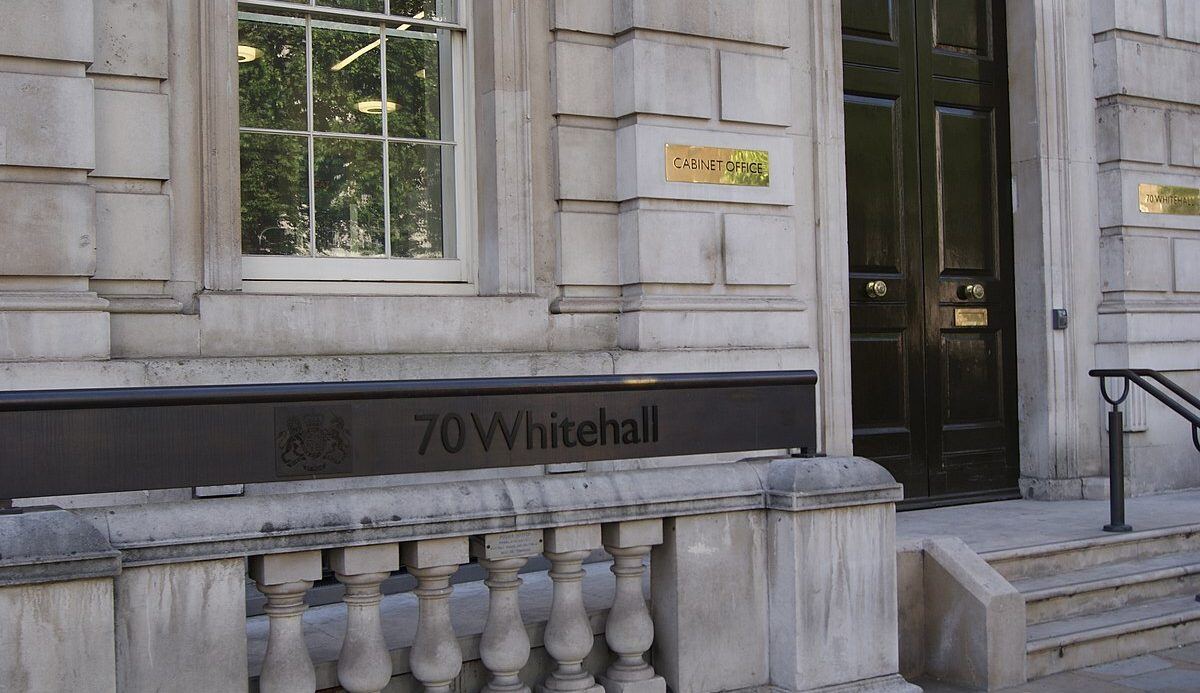Spending Review 2025
Spending Review 2025 (SR25) sets out the government’s plans to invest in Britain’s renewal: its security, health and economy. SR25 sets departmental budgets for day‑to‑day spending until 2028‑29, and until 2029‑30 for capital investment, with total departmental budgets growing by 2.3% across the Spending Review (SR) period. It also sets devolved government block grants for the same period.
SR25 delivers on the government’s Plan for Change: building strong foundations, kick‑starting economic growth, cutting hospital waiting lists, giving children the best start in life, securing control of the country’s borders, putting police back on the beat, building 1.5 million new homes, and securing home‑grown energy.
Over the last year, the government has taken action to fix the foundations of the economy, put the public finances on a sustainable path, and support growth. At the Budget last autumn, the government set out a clear fiscal strategy which included fundamentally reforming the fiscal framework by changing the government’s approach to spending to support transparency, certainty and stability, and introducing new, non‑negotiable fiscal rules. The government has now confirmed its plans for spending within the totals set out at the Spring Statement.
The steps the government has taken to restore stability have supported the independent Monetary Policy Committee of the Bank of England to cut interest rates four times since last July, leading to a fall in the cost of new mortgages. Real wages are rising, and have risen by more since July 2024 than during the entirety of the 2010s. Millions of working people have also seen a pay rise of up to £1,400 a year following the government’s decision to increase the national living wage.
Since the autumn, the international context has fundamentally changed. Global economic policy uncertainty has increased, and security threats have grown.
The UK economy has proven resilient and the UK has seen the fastest growth in the G7 for the first quarter of this year. Both the Bank of England and the International Monetary Fund have upgraded their forecasts for GDP growth in 2025.
The government has acted quickly to strengthen partnerships with allies around the world through new trade deals with the United States, India and the European Union, and will take further steps in the upcoming trade strategy, to be published later this year.
There is still further to go to address the long‑term challenges that the country faces. By delivering necessary investment in combination with fundamental reform, and ruthlessly bearing down on waste through the first zero‑based review in nearly 18 years, this SR takes the difficult but necessary decisions to ensure that funding is spent on national priorities: the country’s security, health and economy.
Security
The first duty of the government is to keep the country safe. This is why in February, the government announced that defence spending will rise to 2.6% of GDP from 2027, with an ambition to reach 3% in the next Parliament when economic and fiscal conditions allow. This SR confirms the government’s plans for defence spending, consistent with the announcement in February, and sets out further investment in the UK’s intelligence agencies, whose budget will rise by £600 million in real terms over the SR period, enabling them to remain at the cutting edge of technology and keep pace with rising threats from hostile states. It also supports the ambition set out in the recently published Strategic Defence Review.
Dangerous small boat crossings are undermining security and costing lives. The government’s plans will reduce irregular migration and the flow of illicit commodities into the UK, and safeguard victims of trafficking and smuggling. Phase 1 of the SR provided initial funding for a new Border Security Command to tackle criminal gangs. Phase 2 takes the next steps to deliver these plans, providing up to £280 million additional RDEL in 2028‑29 for the Border Security Command, to tackle the people‑smuggling gangs running the small boats.
Energy security is core to the government’s national security plans. By failing to invest at scale over many years in clean, secure, home‑grown power, the UK has been left exposed to volatile international fossil fuel markets. This SR addresses this, ending decades of delay on critical energy projects by giving the green light to Sizewell C, a Small Modular Reactor, and Carbon Capture, Usage and Storage programmes.
Health and public services
The government is providing a £29 billion real terms increase (£53 billion cash increase) in annual NHS day‑to‑day spending from 2023‑24 to 2028‑29. This will take spending to £226 billion by 2028‑29, equivalent to a 3.0% average annual real terms growth rate over the SR period. This investment will support the NHS to deliver the government’s Plan for Change commitment, meaning that by the end of the Parliament, 92% of patients will start consultant‑led treatment for non‑urgent conditions within 18 weeks of referral. The SR also announces a £2.3 billion real terms increase (£4 billion cash increase) in DHSC’s annual capital budgets from 2023‑24 to 2029‑30 to invest in the NHS, including in new technology, hospitals and primary care. This will deliver the largest ever health capital budget, representing a more than 20% real terms increase by the end of the SR period.
The government is taking action to return local government to a sustainable financial position, providing an additional £3.4 billion of grant funding in 2028‑29 compared to 2024‑25. This equates to an average annual real terms increase in overall local authority core spending power of 3.1% across the SR period.
The schools budget will grow by £2 billion in real terms over this SR. This provides a £4.7 billion cash increase per year by 2028‑29 (compared to 2025‑26), which ensures average real terms growth of 1.1% a year per pupil. Around £2.4 billion per year will be invested in the School Rebuilding Programme over the next four years, reaffirming the government’s commitment to rebuild over 500 schools. Alongside this, the SR will provide funding for skills, including to ensure 1.3 million 16‑19 year‑olds can access high‑quality training opportunities.
To support the justice system and keep the country safe, this SR provides £7 billion from 2024‑25 to 2029‑30 to build 14,000 new prison places, alongside up to £700 million per year by 2028‑29, compared with 2025‑26, to transform the probation system. The government is therefore providing the funding necessary to deliver transformative reforms to sentencing, based on the recommendations set out in the recent Sentencing Review.
Police spending power will increase by an average 2.3% per year in real terms over the SR period. This will support frontline policing levels across England and Wales and help restore public confidence in policing. This reflects the government’s Plan for Change commitment to put an additional 13,000 police officers, police community support officers and special constables into neighbourhood policing roles over this Parliament and help keep communities safe.
Investment must go hand in hand with reform. This SR therefore sets out plans to reform key public services, including improving productivity and reducing bureaucracy in the NHS, promoting earlier intervention in children’s social care, and delivering transformative reforms to sentencing in order to ensure stronger, more effective punishment.
As a result of the changes outlined in the SR, the devolved governments will receive, on average, an additional £4.8 billion per year for day‑to‑day spending between 2026‑27 and 2028‑29 and £930 million capital between 2026‑27 and 2029‑30 through the operation of the Barnett formula. This includes on average per year £2.4 billion resource and £510 million capital for the Scottish Government, £1.4 billion resource and £200 million capital for the Welsh Government and £1 billion resource and £220 million capital for the Northern Ireland Executive. The devolved government SR settlements are the largest in real terms since devolution in 1998.
Economic growth
The government increased the capital envelope by over £100 billion at Autumn Budget 2024 (£107 billion from 2025‑26 to 2029‑30) and by a further £13 billion over the same period at Spring Statement 2025. Taken together, the government is investing an additional £120 billion over the SR period compared with the plans set out at Spring Budget 2024. SR25 allocates this additional investment while remaining within Spring Statement 2025 total capital spending plans.
This has enabled substantial new capital investment to ensure growth is felt across the country. The government is providing:
- £15.6 billion in total by 2031‑32 through the new Transport for City Regions (TCR) settlements to give metro mayors of some of England’s largest city regions long‑term transport settlements;
- £39 billion for a new 10‑year Affordable Homes Programme;
- £14.2 billion for Sizewell C over the SR period, the first state‑backed nuclear power station since 1988; and
- £22.6 billion per year for research and development by 2029‑30, in support of the government’s forthcoming modern Industrial Strategy.
To ensure that the growth benefits of this investment are realised more quickly and drive improvements in public services, SR25 brings forward £3.3 billion capital spending into 2026‑27 from later years while maintaining total capital spending over the period at the level set out at Spring Statement 2025.
SR25 also allocates £9.6 billion in additional financial transactions, such as loans and equity investments, to support growth. This has enabled the government to expand the financial capacity of the British Business Bank and Great British Energy, and to confirm £4.8 billion in financial transactions from 2026‑27 to 2029‑30 to catalyse private investment in house building. The government’s use of financial transactions is subject to robust controls. These measures have been enabled by the fiscal framework reforms announced at Autumn Budget 2024.
The government is committed to ensuring that the benefits of this funding are felt across all nations and regions of the United Kingdom. To support this, the government is:
- Devolving power and decision‑making from Whitehall to local leaders, including through implementing five new integrated settlements, and providing funding for new mayoral strategic authorities through the Devolution Priority Programme;
- Investing directly in local communities, including establishing a new local growth fund for specific mayoral city regions in the North and Midlands with the highest productivity catch‑up and agglomeration potential, and new investment in up to 350 deprived communities across the UK; and
- Implementing a new approach to appraisal in the public sector by reforming the Green Book and how it is used to provide objective, transparent advice on public investment across the country, including outside London and the South East.
The government is also taking steps to bring down cost of living pressures for working families. This includes expanding Free School Meals eligibility in England to all children with a parent receiving Universal Credit, capping bus fares at £3, capping the cost of school uniforms, and committing a further £13.2 billion between 2025‑26 and 2029‑30 for the Warm Homes Plan.
Reforming the state
The government will drive fundamental reform to ensure the state is set up to deliver, and every pound of taxpayers’ money is spent well. To support these plans, the £3.25 billion Transformation Fund, first announced at Spring Statement 2025, will drive a preventative approach to public services and modernise the state.
The SR sets out plans for a step change in investment in digital and artificial intelligence (AI) across public services, including in the NHS. The government will build strong digital and technology foundations, tackle urgent cybersecurity and technical resilience risks, modernise public service delivery and drive a major overhaul in government productivity and efficiency. An additional £1.2 billion will be provided across the SR period to drive forward cross‑cutting digital priorities.
The government will modernise the civil service and make the public sector more productive and agile, to ensure that it operates more efficiently and at lower cost to the taxpayer while delivering high quality outcomes. The SR announces reductions in back‑office costs, with all departments reducing their administration budgets by at least 16% in real terms by 2029‑30. This will support a rebalancing of day‑to‑day spending away from central government and towards the services that the public rely on.
Through the SR, the government has rooted out waste and inefficiency. For the first time in 18 years, this SR has included a zero‑based review of spending. Every department has undertaken line‑by‑line scrutiny of its accounts to identify the lowest value for money expenditure. All departments will deliver at least 5% savings and efficiencies by 2028‑29. The Office for Value for Money has worked closely with departments to agree bespoke and stretching technical efficiency targets, underpinned by credible delivery plans.
These savings, efficiencies and reforms will make sure that public spending is focused on what matters most: delivering for working people. By taking a mission‑led approach, this government is supporting public services, driving investment and generating sustainable long‑term growth, all while bolstering economic stability.
Read the full Spending Review 2025 below.
Source: UK Government: https://www.gov.uk/government/publications/spending-review-2025-document/spending-review-2025-html
The Critical Supply Group consists of companies and professionals committed to secure and resilient critical supply chains. CSG is managed by MAP UK & International. For more details, including how to get involved, or to make contact with any of the entities involved, please email info@mapukinternational.com.
.png?quality=high&width=300&height=141&name=CSG%20Logo%20c%20(1).png)


